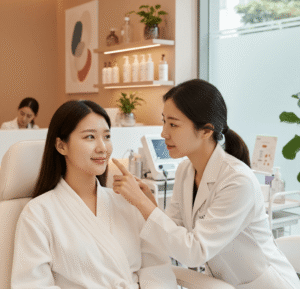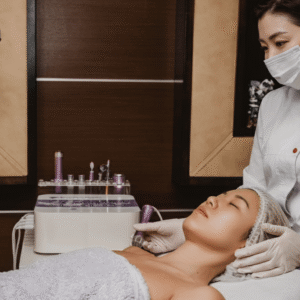In recent years, South Korea has made notable progress in promoting menstrual health education — transforming what was once a quiet, overlooked topic into a matter of public health, equality, and empowerment. Schools across the country are introducing comprehensive menstrual education programs, breaking long-held taboos, and ensuring that young people of all genders understand menstrual health as a normal, important part of human biology. This change reflects Korea’s broader commitment to health literacy and gender inclusivity in education.
The Need for Better Menstrual Education
For decades, menstrual health education in Korean schools was limited to short lectures within general health or biology classes. Many students, especially girls, learned about menstruation from peers or the internet rather than through structured lessons. This lack of clear education contributed to misunderstandings, stigma, and embarrassment surrounding menstrual cycles.
As awareness of gender equality and reproductive health has grown, educators and policymakers have recognized that menstrual health is not just a women’s issue — it’s a key component of overall wellness and dignity. Expanding menstrual health education helps:
● Promote body confidence and self-awareness among adolescents.
● Prevent misinformation about menstrual hygiene and reproductive health.
● Encourage empathy and understanding among all students, regardless of gender.
● Reduce stigma and bullying often associated with menstruation.
● Empower young women to manage their health confidently and seek medical help when necessary.
National and Local Government Initiatives
The Korean government has taken a proactive approach to improving reproductive health education through nationwide and regional programs.
● Ministry of Education Guidelines: Updated national curricula now include menstrual and reproductive health within primary and middle school health education. Students learn about menstrual cycles, hygiene management, emotional well-being, and nutrition.
● Local School District Programs: Cities such as Seoul, Busan, and Daejeon have launched pilot projects to distribute free menstrual hygiene kits in schools and public restrooms.
● Teacher Training Workshops: Health educators and school nurses are receiving specialized training to handle sensitive questions and teach inclusively.
● Government Grants: Schools can now apply for funding to build private rest areas, vending machines, and sanitation facilities for menstruating students.
These efforts ensure that menstrual health is treated with the same importance as other physical and mental health topics.
The Role of Teachers and Health Educators
Teachers are playing a crucial role in creating safe, open environments for discussion. Health educators are now using interactive lessons, visual tools, and gender-neutral language to explain menstruation clearly.
● Lessons emphasize that menstruation is a natural biological process, not something shameful or secret.
● Male students are encouraged to participate and learn, helping to normalize discussions.
● School nurses often host menstrual health workshops or Q&A sessions where students can ask questions anonymously.
● Visual materials and digital learning platforms make education more engaging and inclusive.
By shifting the classroom culture, Korean schools are helping to eliminate stigma and ensure all students understand menstrual health as part of normal life.
Community and NGO Involvement
Non-governmental organizations (NGOs) and local communities are complementing school efforts through outreach and advocacy.
● The Korean Women’s Development Institute (KWDI) and similar organizations have pushed for better menstrual education policies and free product access in schools.
● Youth advocacy groups organize awareness campaigns like “Period Positivity Weeks” that include open discussions, poster contests, and health seminars.
● Community centers and clinics offer menstrual health workshops for parents, helping them communicate openly with their children.
● Partnerships with companies producing eco-friendly menstrual products have led to school donation drives and educational materials on sustainability and hygiene.
This collaboration between schools, civil society, and private partners ensures menstrual health awareness reaches every community.
Innovations in Menstrual Health Programs
Many schools are adopting creative and student-centered approaches to menstrual health education.
● Digital Learning Tools: Educational apps and online modules teach menstrual cycle tracking, nutrition, and stress management.
● Gender-Inclusive Curricula: Lessons emphasize that menstruation affects everyone — directly or indirectly — promoting empathy and inclusion.
● Eco-Friendly Education: Students learn about reusable menstrual products like cups and cloth pads, alongside discussions on environmental sustainability.
● Art and Media Projects: Schools encourage creative expression through art, film, or writing projects on menstrual health awareness.
● Peer Support Groups: Some schools have student-led clubs where older students mentor younger ones about menstrual health and self-care.
These initiatives make learning interactive, positive, and relatable, ensuring the topic resonates beyond the classroom.
Public Health and Social Impact
Expanding menstrual health education in Korean schools is not just about biology — it’s about public health, equality, and dignity.
● Improved Hygiene Practices: Students learn proper care methods, reducing infections and absenteeism linked to menstruation.
● Equal Access to Education: With menstrual support facilities and free product distribution, fewer girls miss school during their periods.
● Breaking Taboos: Open conversation in schools helps reshape public attitudes toward menstruation, reducing shame and stigma.
● Early Health Intervention: Students gain awareness of when menstrual irregularities or severe pain may signal medical conditions such as PCOS or endometriosis.
● Gender Equality: By teaching boys and girls alike, schools promote mutual understanding and respect from an early age.
Ultimately, this education creates healthier, more informed generations ready to make responsible health decisions.
Challenges and Areas for Improvement
While progress is significant, challenges remain in fully implementing menstrual health education nationwide.
● Inconsistent Implementation: Some schools, particularly in rural areas, lack resources or trained educators.
● Cultural Sensitivity: Despite growing openness, cultural discomfort still hinders frank discussion in some classrooms.
● Teacher Training Gaps: More professional development is needed for teachers to handle complex questions confidently.
● Access Inequality: Not all schools can afford free product programs or upgraded facilities.
● Parent Involvement: Parents’ discomfort with the topic can limit learning continuity at home.
Addressing these challenges requires ongoing collaboration among government, educators, and the private sector.
Future Outlook
South Korea’s focus on menstrual health education is expanding rapidly and expected to evolve further in the coming years.
● Comprehensive Health Curricula: By 2030, menstrual health will likely be fully integrated into holistic reproductive health programs in all schools.
● Nationwide Product Accessibility: Free menstrual products could become standard in public schools and youth centers.
● Digital Health Platforms: Apps and online resources will allow students to learn privately and track their health safely.
● Global Cooperation: Korean educators may share best practices with other nations seeking to improve menstrual health literacy.
● Stronger Parent-Teacher Collaboration: Families will be more engaged in supporting open conversations about reproductive health.
These developments reflect Korea’s broader commitment to health equality, education, and gender respect.
Final Thoughts
Korea’s expansion of menstrual health education marks a major step forward in creating a more inclusive, healthy society. By providing accurate information, practical support, and emotional understanding, schools are ensuring that every student — regardless of gender — grows up informed and empowered.
● Education removes stigma and builds confidence.
● Understanding menstruation is understanding health.
● Korean schools are leading the way toward equality and well-being.
With continued support from educators, government, and communities, menstrual health education in Korea will keep growing — nurturing a generation that values health, empathy, and respect for all.













